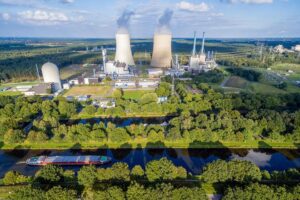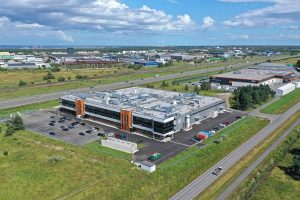The project, titled “Design and Development of an Electricity and Steam Production System Using Thermal Storage for Green H2 Generation by Electrolysis (H2-24/7),” recently received final approval from the Institute for the Diversification and Saving of Energy (IDAE) under Program 4 H2 Value Chain. This approval, in favor of the RPow-H2B2 consortium, comes with a grant of €2.66 million to support the construction and commissioning of the new plant, which will be located in Seville.
This project, focused on the production of renewable hydrogen through a high-temperature electrolysis process using renewable energy sources, represents a significant advancement in the renewable energy sector by combining thermal storage with hydrogen production around the clock. The process is enabled by a new high-efficiency SOEL electrolyzer technology. Specifically, this hybrid procedure includes a novel thermal energy storage system based on molten salts, which allows for the accumulation and management of both the thermal and electrical energy required by the electrolyzer for its operation.
The H2-24/7 project aims to maximize the use of the electrolyzer, extending its operation to more hours per day and significantly increasing hydrogen production. According to RPow CEO César Martín-Montalvo, “The thermal storage system will provide electricity through a turbine and heat for the electrolytic process, possibly the most innovative feature of this new plant.”
At the same time, a 100 kW electrolyzer with an electrical efficiency of 39 kWh/kg will be developed, which, according to Javier Brey, CTO of H2B2, means “meeting the European Union’s hydrogen production targets within the framework of the Strategic Research and Innovation Agenda (SRIA) established by the Clean Hydrogen Partnership.”
In this regard, César Martín-Montalvo highlighted that the thermal energy storage (TES) system is capable of producing both electricity and high-temperature steam (700–900°C) with a single system, which are the two essential elements necessary for the operation of this type of electrolyzer.






